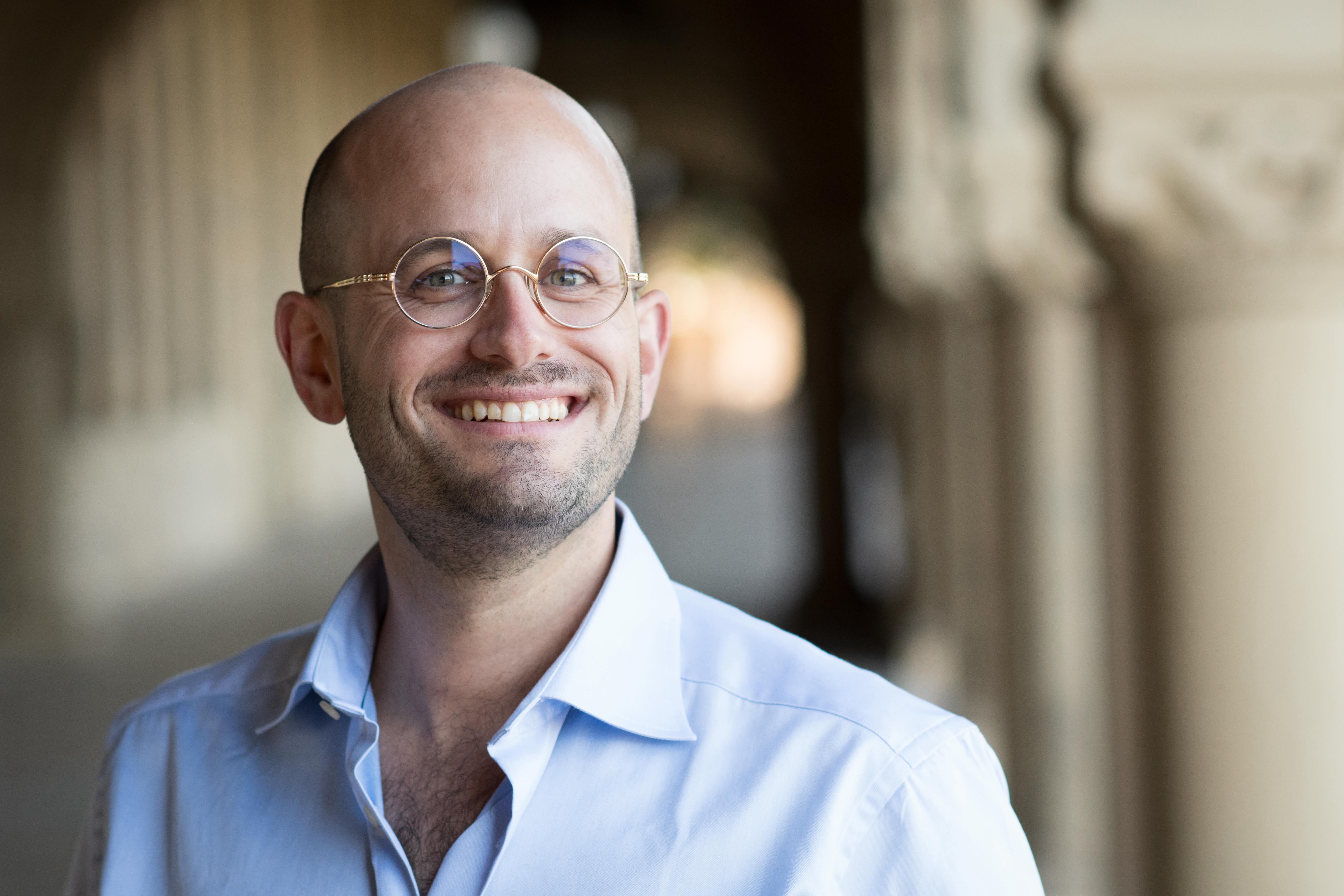Chagai M. Weiss

Assistant Professor
Andrea and Charles Bronfman Chair
The Univeristy of Toronto
chagai.weiss@utoronto.ca
Welcome! I am an Assistant Professor of Political Science and the Andrea and Charles Bronfman Chair in Israel Studies at The University of Toronto. I am also an affiliated faculty at Stanford University's Politics and Social Change Lab. I received my Ph.D. in Political Science from The University of Wisconsin-Madison, and was a Middle East Initiative predoctoral research fellow at The Harvard Kennedy School, as well as a postdoctoral fellow at Stanford University's Conflict and Polarization Initiative and Politics and Social Change Lab. My research focuses on the political effects and institutional remedies of conflict and polarization, with an emphasis on three central questions:
- How do institutions shape intergroup relations in divided societies?
- What are the effects of conflict on political preferences and behaviors?
- How can social scientists improve the design, implementation, and interpretation of experiments?
In my forthcoming book Delivering Tolerance: How Unintended Institutional Inclusion Reduces Prejudice (Princeton University Press, Studies in Political Behavior Series), I explain why reducing prejudice in conflict-ridden societies is challenging and how minority institutional inclusion in the rank and file of service-provision institutions can reduce social exclusion. While much of my work is regionally focused on Israel-Palestine, it is comparative in nature and draws on data from the Middle East, the United States, and Europe.
My research has been published with Cambridge University Press, the Proceedings of the National Academy of Sciences, the American Political Science Review, the American Journal of Political Science, the Journal of Politics, and Comparative Political Studies and has received multiple awards from the American and Midwest Political Science Associations.Books
-
Delivering Tolerance: How Unintended Institutional Inclusion Reduces Prejudice. Forthcoming with Princeton University Press, Studies in Political Behavior Series.
[Manuscript Excerpt] -
Abstraction in Experimental Design: Testing the Tradeoffs.
(with Ryan Brutger, Joshua Kertzer and Jonathan Renshon). Cambridge University
Press, Elements in Experimental Political Science series. 2022.
[Overview]
Publications
- Outgroup Avoidance. Forthcoming at The Journal of Politics. (with Alexandra Scacco and Alexandra Siegel). [Pre-Print] [Pre-analysis Plan I] [Pre-analysis Plan II] [Pre-analysis Plan III] [Replication Files]
-
Financial Market Exposure Increases Generalized Trust, Particularly Among the Politically Polarized. Accepted at The Journal of Public Economics. (with Saumitra Jha and Moses Shayo).
Stanford GSB Working Paper No 4083.
[Review at Stanford GSB Insights] -
The Generalizability of IR Experiments Beyond the U.S. Forthcoming at the American Political Science Review, (with Lotem Bassan-Nygate, Jonathan Renshon, and Jessica Weeks).
[Pre-Print] [Pre-analysis Plan] [Replication Files] -
Female Representation and Legitimacy: Evidence from a
Harmonized Experiment in Jordan, Morocco, and Tunisia. (With Kristen Kao, Ellen Lust, and Marwa Shalaby). 2024,
American Political Science Review.
[Pre-Print] [Pre-analysis Plan] [Replication Files] -
Educating for Inclusion: Diversity Education
Programs can Reduce Prejudice towards Outgroups in Israel. 2023. (with Eran Halperin and Shira Ran). Proceedings of the National Academy of Sciences.
[Pre-analysis Plan I] [Pre-analysis Plan II] [Pre-Print] [Replication Files] [Israeli National TV (כאן) Newstory] [Israeli National Radio (כאן) Feature] -
Beliefs about Minority Representation in Policing
and Support for Diversification. 2022. (with Kyle Peyton and Paige Vaughn). Proceedings of the National Academy of Sciences.
[Pre-print] [Replication Files] -
How Threats of Exclusion Mobilize Palestinian Political Participation. 2023.
(with Alexandra Siegel and David Romney). American Journal of Political Science.
[Pre-analysis Plan] [Pre-print] [Replication Files] -
Abstraction and Detail in Experimental Design.
2023. (with Ryan Brutger, Joshua Kertzer, Jonathan Renshon, and Dustin Tingley). American Journal of Political Science.
[Pre-print] [Replication Files] -
War Time Military Service Can Affect Partisan Preferences. 2022. (with Anna Getmansky). Comparative Political Studies.
[Pre-print] [Replication Files] -
Atypical Violence and Conflict Dynamics: Evidence from Jerusalem. Forthcoming. (with Eugene Finkel, Yon Lupu, Dan Miodownik, and Neal Tsur). Political Science Research and Methods.
[Replication Files] -
Interstate Conflict Can Reduce Support for Incumbents: Evidence from the Israeli Electorate and the Yom Kippur War. 2023. (with Anna Getmansky). Journal of Conflict Resolution.
[Replication Files] -
Diversity in Health Care Institutions Reduces Israeli Patients’ Prejudice toward Arabs. 2021.
Proceedings of the National Academy of Sciences.
[Pre-analysis Plan] [Replication Files] -
Party Competition and Cooperation Shape Affective Polarization: Evidence from Natural and Survey Experiments in Israel. 2020. (with Lotem Bassan-Nygate)
Comparative Political Studies.
[Pre-print] [Pre-analysis Plan] [Replication Files] [Scope Conditions Podcast] [Monkey Cage Blog] [בלוג המכון לחירות ואחריות] - Bureaucratic Politics and the Translation of Movement Agendas. 2019. (with Sharon Gilad and Saar) Governance.
-
Geographies of violence in Jerusalem: The spatial logic of urban intergroup conflict. 2018.
(with Jonathan Rock and Dan Miodownik). Political Geography.
[Replication Files]
Working papers
-
Politicians' Bipartisan Appeals to Civility and Partisan Divides: A Field Experiment with U.S. Governors. Invited to revise and resubmit at The American Journal of Political Science.
(with Robb Willer and Donald Green).
[Washington Post Coverage] - Shooting the Messenger: The Polarizing Effects of Political Attacks on the Press. (with Alexandra Siegel).
-
Seeing Green: The Effects of Financial Exposure on Support for Climate Action.
(with Saumitra Jha, Michele Hanlon, Namrata Kala, and Nemit Shroff).
[AEA RCT Registry] [NBER Working Paper]
In Progress
- Rethinking Prejudice Reduction. In Preparation for the Annual Review of Political Science.
- Healing Democracy: Psychological Distress, Democratic Erosion, and the Promise of AI-Supported Therapy (with Sascha Riaz).
- Persuasion at Scale: Evidence from Meta-Analyses of Proprietary Experiments and Addressable TV RCTs. (with Zeynep Biyikli, Michael Baumer, Donald Green, James Slezak, and Robb Willer).
Teaching
- Causal Inference for Political Scientists (POL2578). PhD-level course at The University of Toronto.